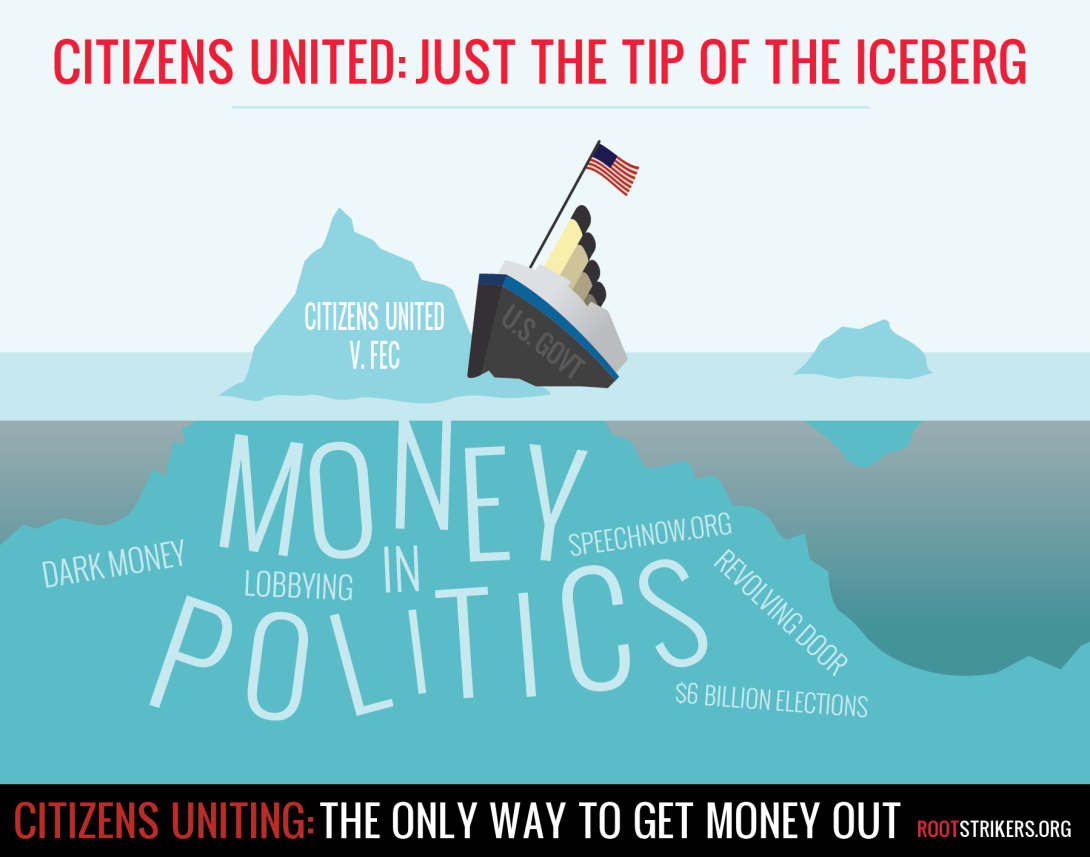Citizens United at Three: The fight for democracy continues

Besides being Inauguration Day and the Martin Luther King Jr. holiday, today also marks the three-year anniversary of the Supreme Court's Citizens United decision, in which the court ruled that the First Amendment prohibited the government from restricting independent political expenditures by corporations.
The ruling has opened the floodgates for outside political spending, further distorting a political system already warped by corporate money. An analysis of federal election data released last week by the Center for Public Integrity calculated that Citizens United led to nearly $1 billion in new political spending in the 2012 election, "with media outlets and a small number of political consulting firms raking in the bulk of the proceeds."
Facing South has also documented the dramatic increase in independent spending at the state level, focusing on North Carolina through the Follow NC Money project. Our research has shown that outside spending groups are bigger players in state elections than ever before.
But at the same time corporate interests are trying to tighten their grip on our democracy, a grassroots movement to challenge Citizens United has risen up. Local governments across the nation have passed resolutions and ordinances challenging corporate personhood, and more than 250,000 people have signed a petition calling for a constitutional amendment to establish that money is not speech and corporations are not persons entitled to constitutional rights. The grassroots group Rootstrikers is holding actions throughout the long inaugural weekend to draw attention to the corrupting influence of money in politics.
To help readers better understand the growing pro-corporate bias in key Supreme Court decisions and their impact on our democracy, we share the following video from Alliance for Justice titled "Unequal Justice: The Relentless Rise of the 1% Court." It documents a 40-year campaign by corporate interests to tip the scales of justice in favor of big business, starting with a 1971 memo written by a corporate attorney who went on to join the court urging the business community to fight the growing consumer and environmental movement.
"We produced this video because we want to highlight the importance of the Supreme Court in the lives of everyday Americans and to spur a renewed sense of activism to hold the court accountable for its actions," says AFJ President Nan Aron. For more information about the film or to host a screening, click here.
Tags
Sue Sturgis
Sue is the former editorial director of Facing South and the Institute for Southern Studies.
